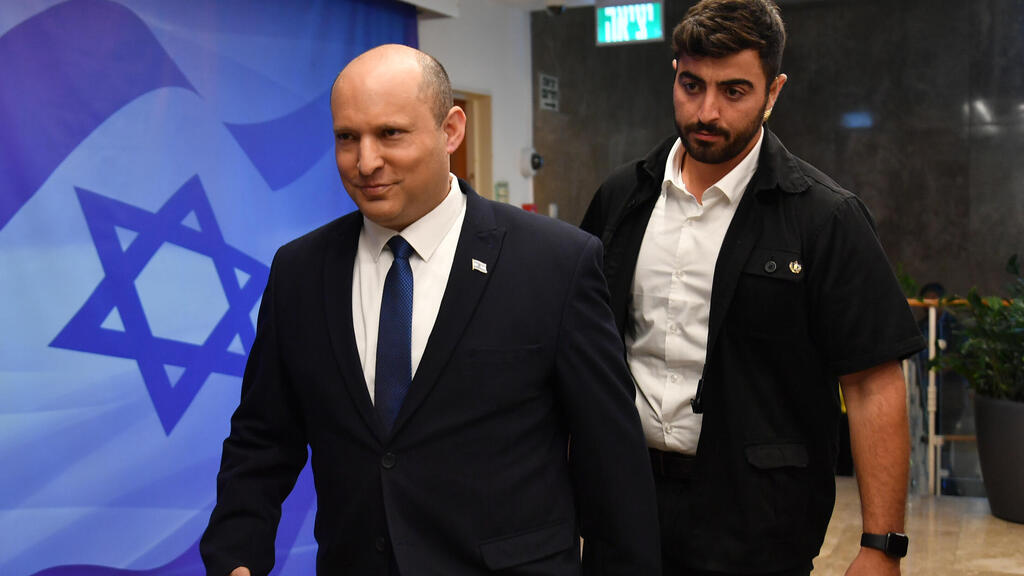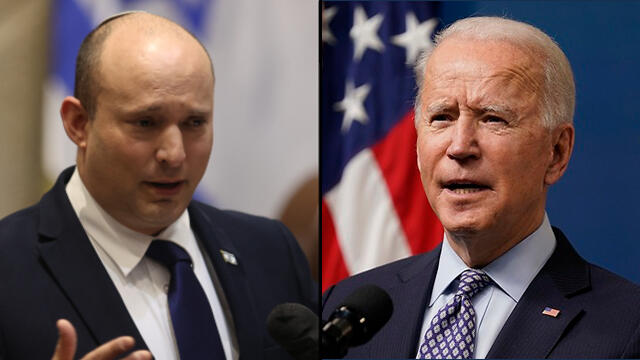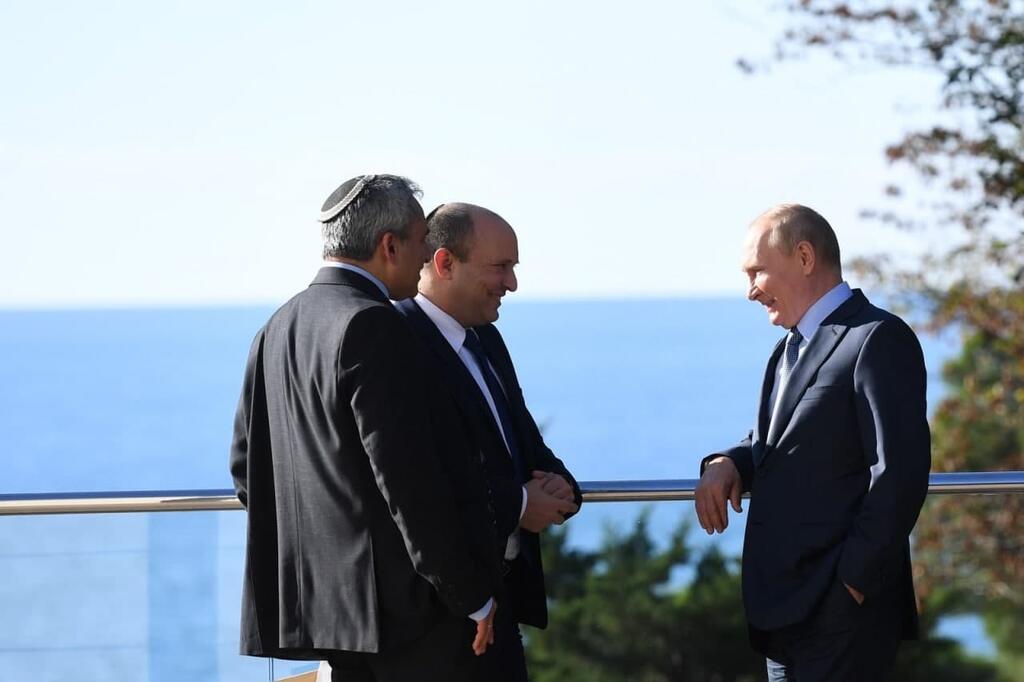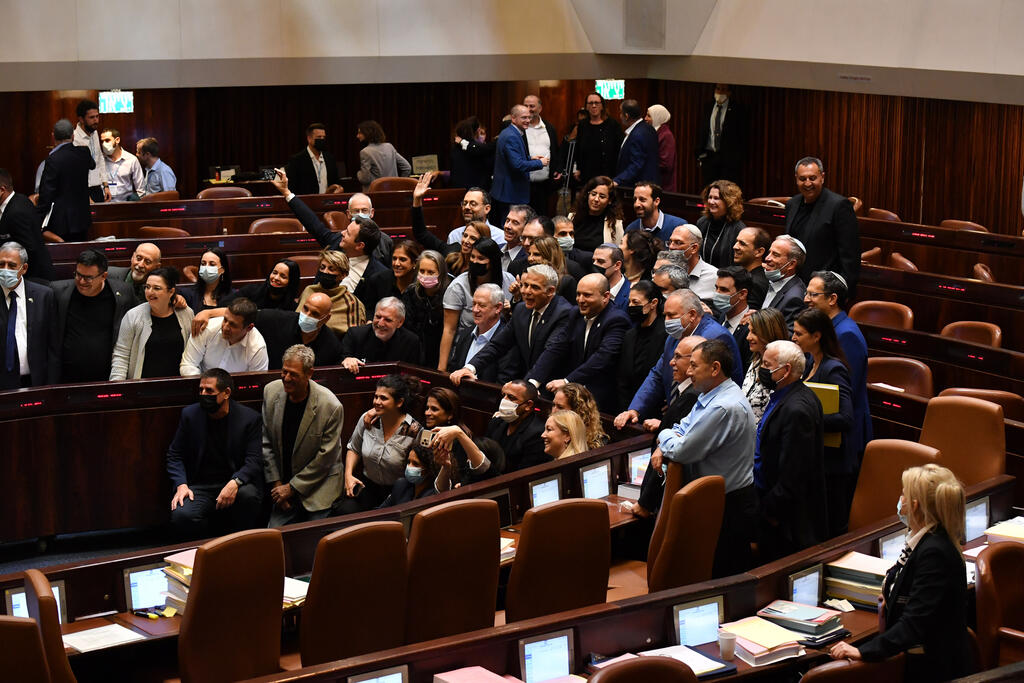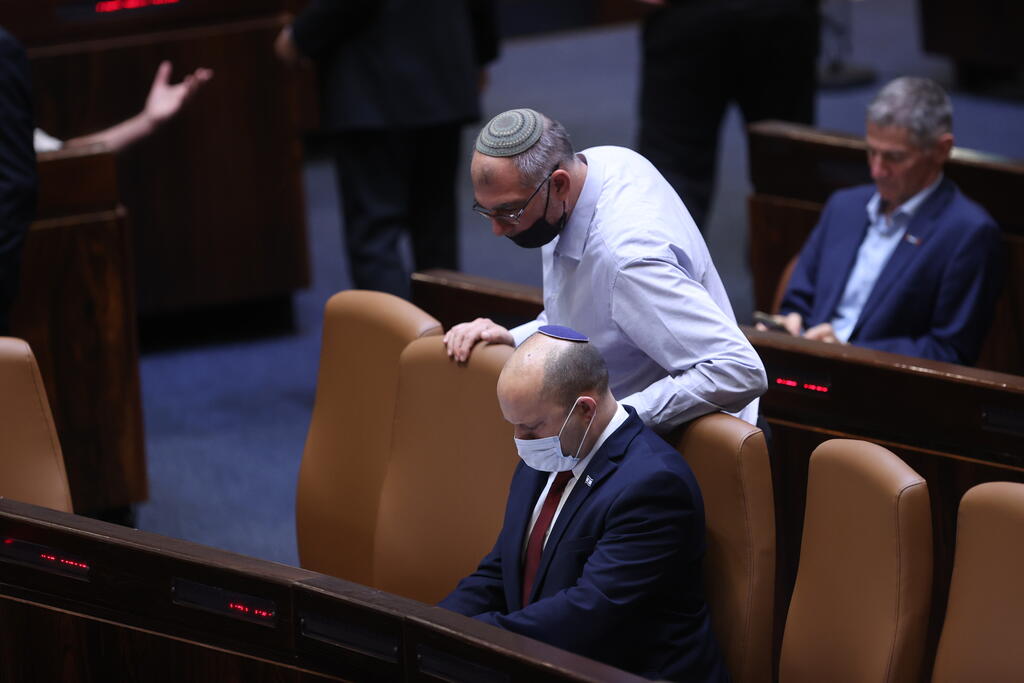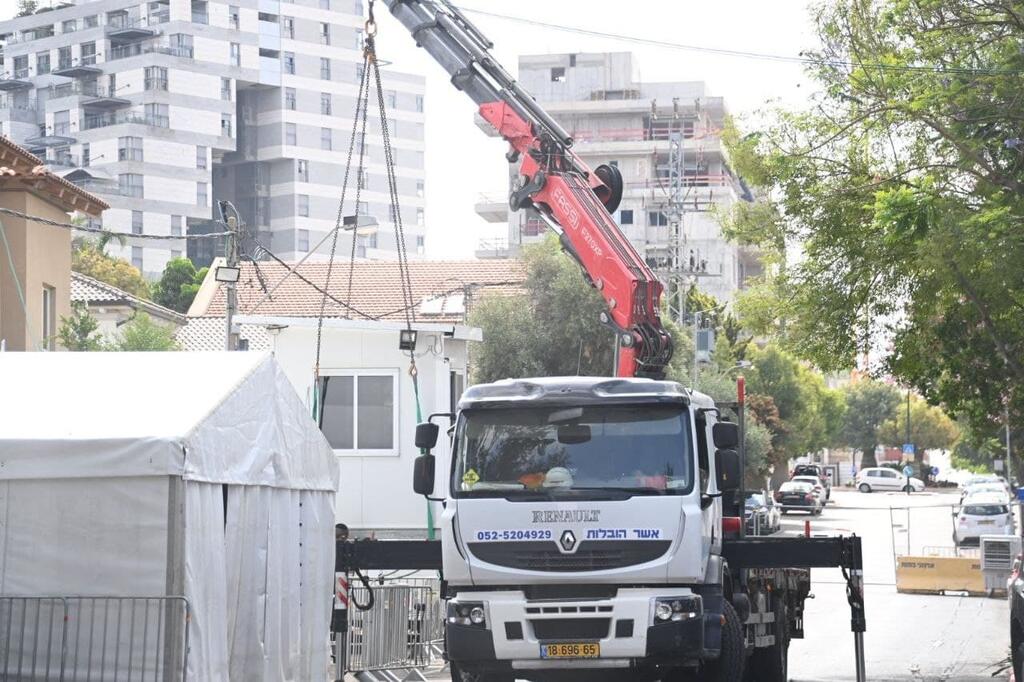Getting your Trinity Audio player ready...
This week will be final as prime minister for Naftali Bennett. Although his term as Israel's 13th primer only lasted a little over a year, the shortest in country's history, in that short period of time he managed to rake up quite a few significant accomplishments and defeats.
During his tenure, the outgoing primer came face to face with a diverse set of challenges: the pandemic, Iran, and everything in between.
The accomplishments:
Forming a government despite political polarity
Bennett's coalition managed to bring together eight political parties from across the entire political spectrum: Right and Left, Jewish and Arab, religious and secular. The coalition that dubbed itself the "government of change" united a diverse group of people, which Bennett managed pretty well, aside from several minor political hiccups.
Quiet on the southern front
Bennett can proudly say this past year has been the most peaceful for the residents of southern Israel have seen in over a decade. His government put a halt to the containment policy toward Hamas and stopped the flow of unregulated cash, all while allowing 14,000 Gazan merchants to come work in Israel - giving the terror group that runs the Palestinian enclave an effective incentive to maintain calm and order.
Iran
One of Bennett's first moves upon entering the primer's office was changing Israel's strategy towards Iran, nicknamed "The Octopus Doctrine". According to the doctrine, the "tentacles of the octopus" - Hezbollah and Hamas - must be routinely targeted in one way or another.
Since then, Israel has allegedly been affiliated with a series of killings of top Iran officials in the last several months, and has been more present militarily in Syria and Lebanon in an effort to prevent the Iranian military entrenchment.
Another significant accomplishment in this arena was Bennett's ability to sway the Americans away from delisting the Islamic Revolutionary Guard Corps (IRGC) from the Foreign Terrorist Organization (FTO). Despite the frequent clashes between President Joe Biden and Bennett on the issue, the two refined the countries' close ties.
Only time will tell if this indeed is an accomplishment. If the effects of Bennett's policies continue to hinder Iran from reaching a nuclear deal with the West, he can check it off as a success.
Restoring ties with the U.S.
Bennett boosted the relations between Israel and the Democratic Party what is reflected by the billion dollar aid package granted to Israel in a partisan Congress vote in order to replenish the Iron Dome stockpile.
Maintaining and enhancing international relations
During his term, regional ties with the UAE, Bahrain, Morocco, Jordan, Turkey, and Egypt were upkept. Bennett also brought together most of these countries in the historic Negev Summit.
Additionally, Bennett acted as a key mediator between Russia and Ukraine following the start of the war between the two countries back in February. Though this didn't lead to groundbreaking results, his efforts granted Bennett and Israel a central international status and respect from the U.S. and UN.
Homeland security
The terror wave that started three moth ago and claimed the lives of 19 people, was a failure for Bennett's government. However, the holy month of Ramadan that is usually characterized by security tensions passed relatively peacefully and didn't spark calamitous uproar - representing a win for the Bennett coalition.
Avoiding COVID lockdowns
Despite many experts' advise, Bennett's pragmatism did not allow him to agree for let Israel enter another lockdown, which prevented the economy from suffering another hard blow after three intense closures under former Primer Minister Benjamin Netanyahu.
Bennett promoted the policy of "living alongside the virus," while backing vaccinations and helping hospitals manage the increase in cases. With the help of this strategy, Bennett was able to bring back routine life to educational institutions, and stabilize unemployment rates (in April 2022, unemployment stood at merely 1.3%).
10 View gallery
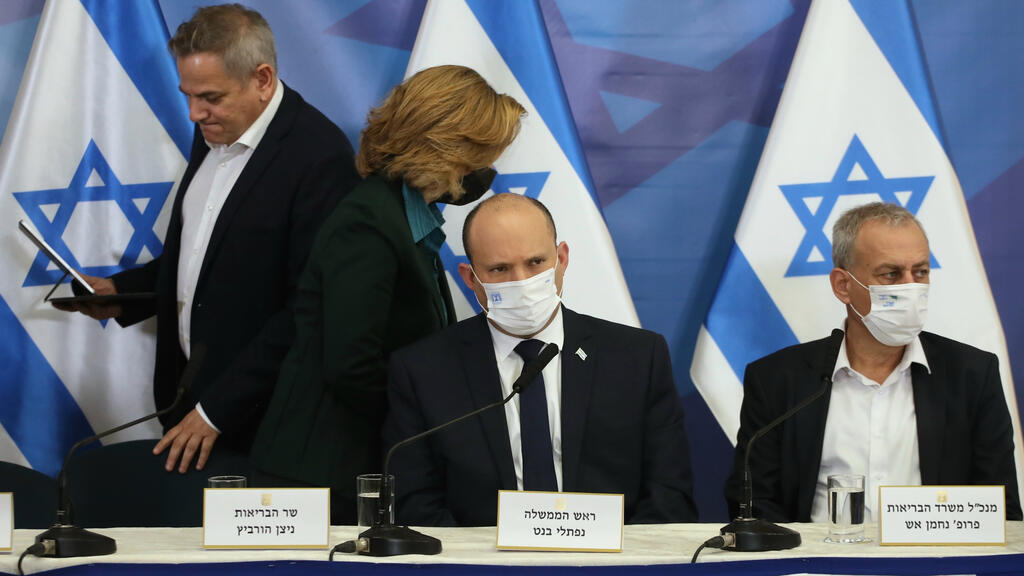

A third vaccination campaign press conference attended by Bennett and Horowitz
(Photo: Moti Milrod)
State budget approval
For the first time in three years, Israel finally passed a state budget in 2022, allowing government offices to finally resume operating as normal. In 2021, the economic growth stood at 2.8%, while the first quarter of 2022 points at a 9% projected increase.
Bennett's defeats
The housing crisis
Housing prices continue to skyrocket despite Bennett's efforts and proposed reforms to reduce the cost of purchasing and renting homes.
The national and political rift
Bennett's term being the shortest Israel has seen points at the polarity that exists within the coalition, the political system, and the nation altogether. Since the coalition members were essentially settling for the government they had formed, they could not overcome the differences between them and convince the nation, let alone themselves, that this unusual partnership would last.
Bennett may have become an international mediator, but keeping his own party at peace was too difficult a task for him, bringing the state to yet another round of elections.
Cost of living
Despite the reforms and efforts to counter the inflation hitting the whole world, prices of basic commodities continue to rise with no relief in the economic burden for the average consumer in sight.
Fortifying in Ra'anana
Bennett's refusal to move to the Prime Minister's Office in Jerusalem sparked public antagonism towards him, after renovation bills of his private home were made public.
While he may have insisted on such because he rightfully wanted to differentiate himself from Netanyahu, he failed to understand the toll breaking this tradition would take on his public image.
10 View gallery


Naftali Bennett on first visit to the Prime Minister's Residence on Balfour Street in Jerusalem
A blow to 'ambiguity' strategy on Iran
Although the "Octopus Doctrine" is on the list of his accomplishments, Bennett's failure was in making Israel's alleged cover operations - transparent.
Security officials call this a mistake, and many believe it may bolster Iranian antagonism toward Israel even more. Case in point, the recent alleged Iranian attempts to harm hunting down Israeli civilians in Turkey.


